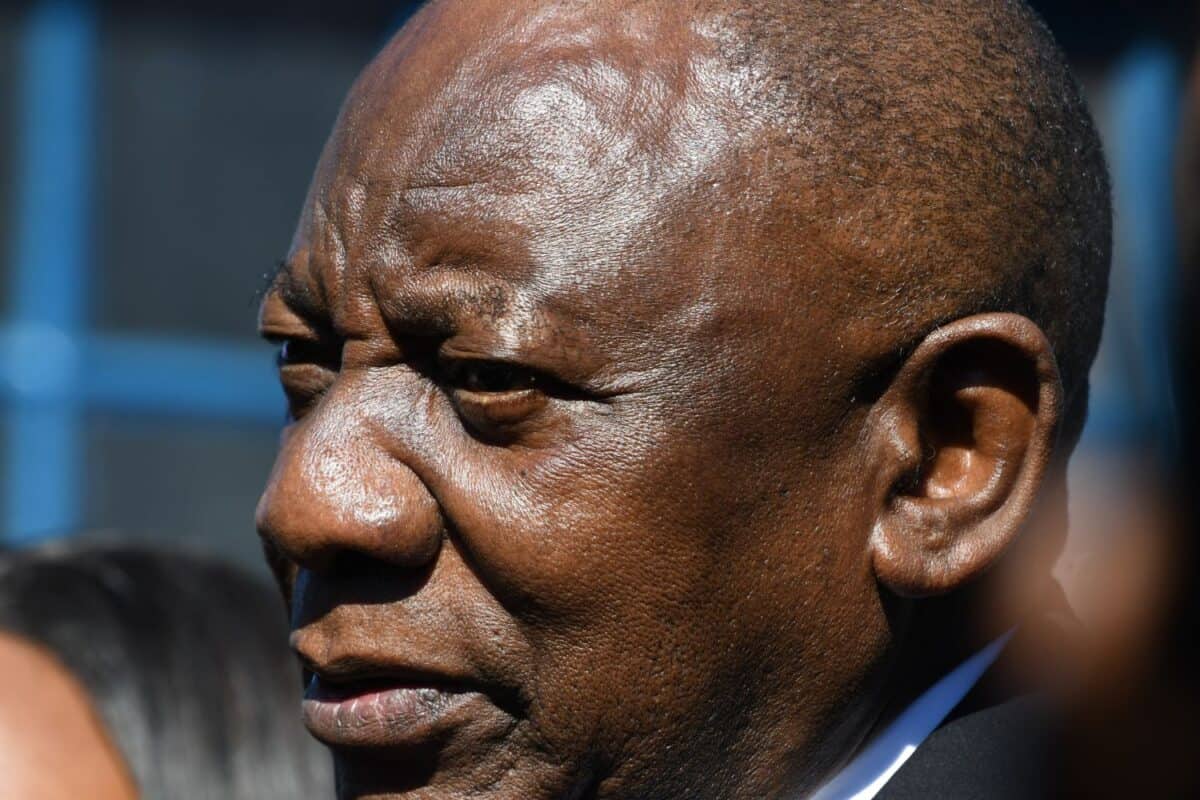Farming leaders blame Ramaphosa’s silence for harsh US trade penalties threatening citrus, wine, and motor industries.
AfriForum holds President Cyril Ramaphosa and his ANC-led government directly responsible for the 30% import tariff that US President Donald Trump announced on Monday.
The organisation maintains Ramaphosa falsely tried to dismiss US concerns as misinformation when they should have acknowledged it and actively resolved it, said Ernst van Zyl, AfriForum head of public relations.
“AfriForum has repeatedly indicated ways in which the government can resolve the issues at the heart of the crisis.
AfriForum blames Ramaphosa for US tariffs
“The civil rights organisation even offered assistance with finding workable solutions.
“Instead of cooperating, the government has made unfounded allegations against AfriForum and claimed the organisation is guilty of spreading misinformation,” Van Zyl said.
ALSO READ: Where Trump’s tariffs will hurt most
“A desperate investigation for treason has even been launched against AfriForum – all for the crime of pointing out the real issues.”
Southern African Agri Initiative (Saai) president Theo de Jager said this potential 30% trade tariff increase on SA exports by August was worrying for farmers.
“Specifically, our nut, wine and citrus farms are in the direct line of fire. A 30% import duty will apply to anything sent from South Africa to the US from August, even for shipments already at sea.”
Major concern for many farmers
De Jager said the US was the biggest consumption market in the world and losing or severely restricting access to such a vital market puts SA at a disadvantage, inevitably disrupting trade.
“A major concern for many farmers is that these duties are understood to override Agoa [African Growth and Opportunity Act], which has been extremely important for us. Finding alternative markets is not easy, creating fierce competition for remaining opportunities.”
ALSO READ: Wait-and-see to Trump’s hardline
The direct and indirect consequences for jobs in the agricultural sector were concerning De Jager said.
“South Africa has faced de-industrialisation and high unemployment for years and if we cannot compete internationally due to these tariffs, our ability to sustain livelihoods and create jobs will be severely hampered.
“Ultimately, this situation is not just about economics but is deeply political,” De Jager said. TLU SA chair Bennie van Zyl said the organisation was upset by the tariff and that nobody negotiated with Trump.
SA didn’t negotiate with Trump
“Some of the countries did this, but the South African government was absent. They did nothing and as a result, we are facing a 30% tariff by next month, which affects the agricultural sector, especially the citrus, wine and red meat industry.”
Van Zyl questioned where the farmers affected by the tariff would find another market to feed.
ALSO READ: Trump’s new 30% tariff less about trade and more about power
“If you look at the bigger picture, the motor industry will also be affected and negatively impact our economy,” Van Zyl said.
Freedom Front Plus trade, industry and competition spokesperson Jaco Mulder said the 30% tariff, likely driven by underlying geopolitical motives, is, by implication, a direct attack on the economic benefits SA derives from Agoa.
“These tariffs are also a response to SA’s growing diplomatic and economic ties with countries such as those in Brics, which the US considers pariah states or adversaries.
Tariffs threaten SA jobs, exports and Agoa
“It could be seen as an attempt to pressure South Africa regarding its foreign policy choices.”
The impact on key sectors, such as the automotive industry, agriculture, textiles and manufacturing, will be devastating and could lead to significant job losses, reduced export revenue and further decline of South Africa’s already struggling economy, Mulder said.
ALSO READ: Ramaphosa disputes Trump’s 30% tariff claim as ‘not accurate’
“When a general tariff of 30% is imposed above and beyond the sector-specific tariffs, such as 25% on vehicles, on all South African exports, the duty-free status granted by Agoa becomes negligible.”
